North Lakes community reels after loss of five cygnets
A community in Moreton Bay is heartbroken after the recent loss of five swans. Read what happened and see the pictures of happier times.
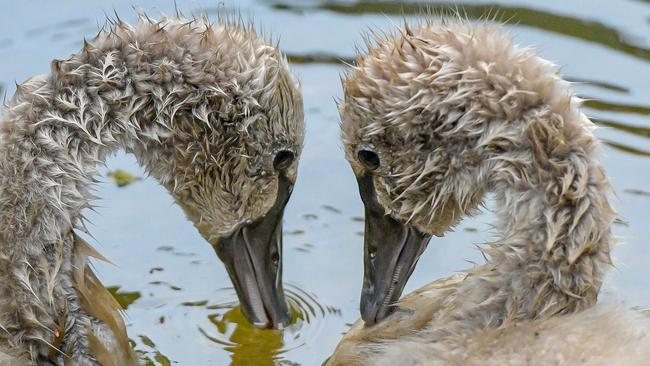
Pets and Wildlife
Don't miss out on the headlines from Pets and Wildlife. Followed categories will be added to My News.
The North Lakes community says it is heartbroken over the loss of five cygnets at Lake Eden over a two-month period.
A pair of black swans have occupied the lake for many years, with the adventures of the swan family attracting dozens of posts on social media each year.
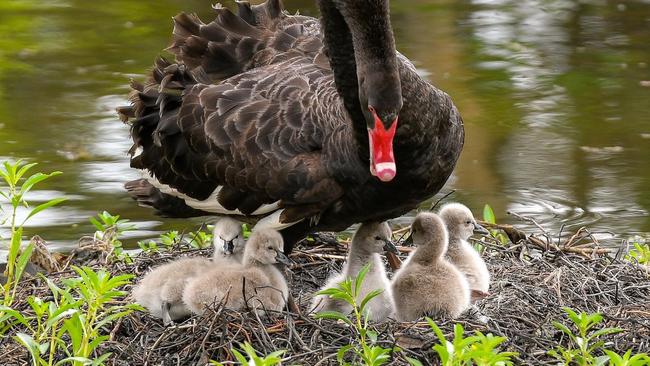
The couple attempted to grow the flock at least two other times in 2022, with five cygnets successfully hatching on November 30.
Just minutes after their first swim, an eel reportedly took one of the cygnets.
Two weeks later, another cygnet went missing, leading to community discussion on how to protect the remaining three cygnets.
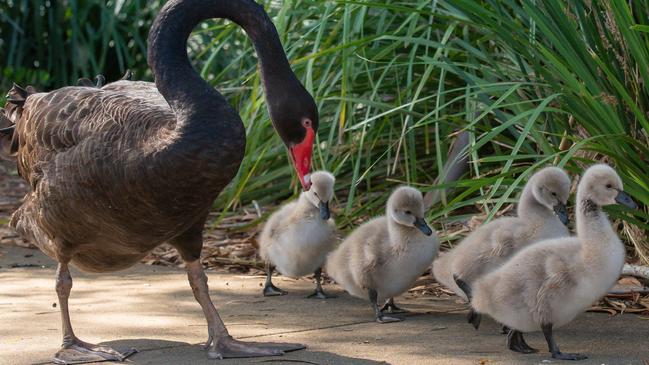
Resident “swan photographer”, Lyn Fletcher, said the third cygnet was unwell not long after.
“I spent some time watching the swans and noticed one not looking well – struggling to hold its head up,” she said.
“I called wildlife rescue and a lovely lady called Shona came out but baby passed away just before she got there.”
A freak storm in early January led to the drowning of the fourth cygnet, after the region was lashed with flash flooding and thunder strikes.
Just over a week later, on January 13, the last cygnet was discovered floating lifeless in the water.
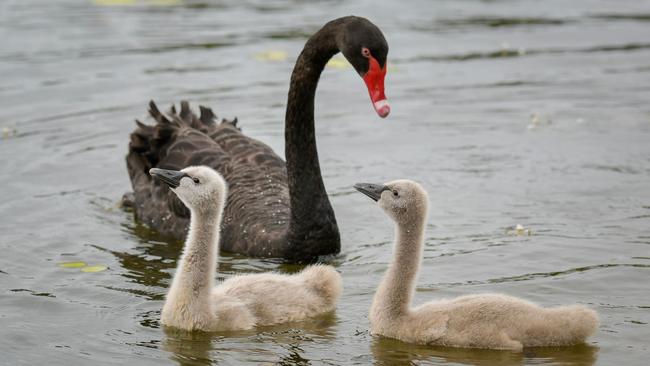
A post on Facebook sharing the tragic news attracted more than 100 comments, with community members as well as Ms Fletcher calling for changes to be made to protect the beloved birds.
“We definitely need cameras around the area to be able to monitor if there are things going on that we don’t see,” she said.
In a media release, Kirsty Short, Associate Professor at University of Queensland, said black swans were at risk of avian influenza.
“Unlike mallard ducks, for example, black swans are extremely sensitive highly pathogenic avian influenza – HPAI, which is often referred to as bird flu – and can die from it within three days,” Dr Short said.
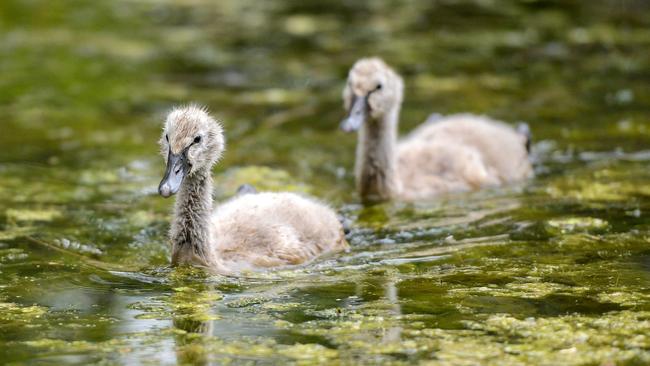
“Our data suggests that the immune system of the black swan is such that, should any avian viral infection become established in its native habitat, their survival would be in peril.”
A Moreton Bay Regional Council spokesman issued a statement in response to the tragedy.
“Unfortunately young birdlife are often the targets of animals further up the food chain, like eels and birds of prey,” he said.




